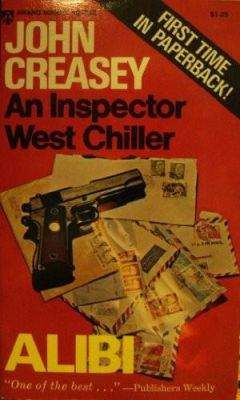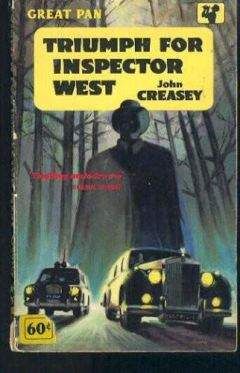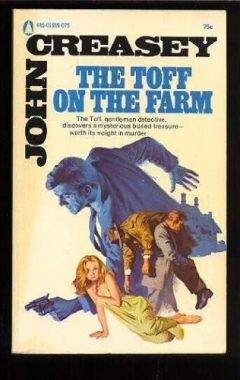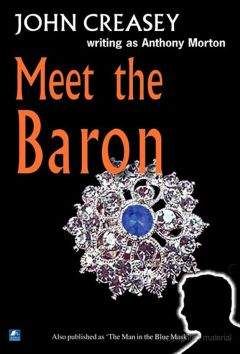John Steinbeck - Once there was a war
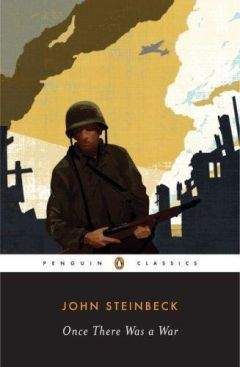
Скачивание начинается... Если скачивание не началось автоматически, пожалуйста нажмите на эту ссылку.
Жалоба
Напишите нам, и мы в срочном порядке примем меры.
Описание книги "Once there was a war"
Описание и краткое содержание "Once there was a war" читать бесплатно онлайн.
He introduces an acrobatic dancer, a pretty girl with long legs and the strained smile acrobats develop to conceal the fact that their muscles are crying with tension. The ship is rolling slowly from side to side. All of her work is dependent on perfect balance. She tries each part of her act several times and is thrown off balance, but, seriously, she tries again until, in a pause in the ship’s roll she succeeds, and legs are distorted properly for the proper two seconds. The soldiers are with her. They know the difficulty. They want her to succeed and they cheer when she does. This is all very serious. She leaves the stage under whistles and cheers.
A blues singer follows. Without the loudspeakers she can hardly be heard, for her voice, although sweet, has no volume. She forces her voice for volume and loses her sweetness, but she is pretty and young and earnest.
A girl accordion-player comes next. She asks for suggestions. This is to be group singing and the requests are for old songs—“Harvest Moon,” “Home on the Range,” “When Irish Eyes Are Smiling.” The men bellow the words in all pitches. There is no war song for this war. Nothing has come along yet. The show continues—a pantomimist who acts out the physical examination of an inductee and does it so accurately that his audience howls. A magician in traditional tail coat manipulates colored silks.
In all the acts the illusion does not quite come off. The audience helps all it can because it wants the show to be good. And out of the little acts, which are not quite convincing, and the big audience which wants literally to be convinced, something whole and good comes, so that when it is over there has been a show.
One of the men in the unit has been afraid. He has not slept since the ship sailed. He is afraid of the ocean and of submarines. He has lain in his bunk, listening for the blast that will kill him. He is probably very brave. He does his act when he is terrified. It is foolish to say he should not be afraid. He is afraid, and that is something he cannot control, but he does his act, and that is something he can control.
Up on the deck in the blackness the colored troops are sprawled. They sit quietly. A great bass voice sings softly a bar of the hymn “When the Saints Go Marching In.” A voice says, “Sing it, brother!”
The bass takes it again and a few other voices join him. By the time the hymn has reached the fourth bar an organ of voices is behind it. The voices take on a beat, feeling one another out. The chords begin to form. There is nothing visible. The booming voices come out of the darkness. The men sing sprawled out, lying on their backs. The song becomes huge with authority. This is a war song. This could be the war song. Not the sentimental wash about lights coming on again or bluebirds.
The black deck rolls with sound. One chorus ends and another starts, “When the Saints Go Marching In.” Four times and on the fifth the voices fade away to a little hum and the deck is silent again. The ship rolls and metal protests against metal. The ship is silent again. Only the shudder of the engine and the whisk of water and the whine of the wind in the wire rigging break the silence.
We have not yet a singing Army nor any songs for a singing Army. Synthetic emotions and nostalgias do not take hold because the troops know instinctively that they are synthetic. No one has yet put words and a melody to the real homesickness, the real terror, and the real ferocity of the war.
SOMEWHERE IN ENGLAND, June 25, 1943—We are coming close to land. The birds picked us up this morning and a big flying boat circled us and then darted away to report us. There has been no trouble at all, and if, on the bridge, the enemy has been reported, we do not know it. The word sifts down from the bridge that we shall land tonight. The soldiers line the rails and report every low-hanging cloud as a landfall. Now that we are near and the lines of our approach are narrow, the danger is greater. The ship swerves and turns constantly. These waters are the most dangerous of all.
The men are reading a little booklet that has been distributed, telling them how to get along with the English. The book explains language differences. It suggests that in England a closet is not a place to hang clothing, that the word “bloody” should be avoided, that a garbage can is a dust bin, and it warns that the English use many common words with a meaning different from what we assign to them. Many of our men find this very funny and they go about talking a curious gibberish which they imagine is a British accent.
A light haze shrouds the horizon, and out of it our Spitfires drive at us and circle like angry bees. They come so close that we hear the fierce whistle of their wings. For a long time they circle us and then go away, and others take their place.
In the afternoon land shows through the haze and, as we get closer, the neat houses and the neat country, orderly and old. The men gaze at it in wonder. It is the first foreign place most of them have ever seen and each man says it looks like some place he knows. One says it looks like California in the springtime of a wet year. Another recognizes Vermont. The men crowd to the portholes and the rails.
The troopship moves into a harbor and drops her anchor. She is surrounded on all sides by shipping and by naval units. The men will go ashore in lighters, but not yet, for disembarkation is, if anything, more complicated than embarkation. Men can easily be lost or mixed with the wrong units.
The night comes and in the staff room officers gather and wait until they are assigned the transportation for their men. It takes a good part of the night. At an exact time each unit must be in an exact place, where a lighter will be waiting to take them on. The troop trains will be waiting ashore. It has been a perfect crossing. No trouble, no sickness, no attack. The ship’s officers show the strain. They haven’t slept much. After a few voyages they must be relieved. The responsibility is too great for a man to bear for too long a stretch.
In the morning the lighters come in and hug the sides of the troopship. The big iron doors open and the troops move out and take their places on the decks of the little boats. The portholes high above are filled with heads looking down. Men for a later debarkation. The little boat moves off, puffs up the bay among the tugs and the destroyers and the anchored freighters. The soldiers are self-conscious in a new place. They regard this new land skeptically as one must when he is not sure of himself. The little boat puffs up to the dock, which has mysteriously become a quay, pronounced “key,” which is, of course, ridiculous.
Now as the lighter ties up an astonishing thing happens. A band of pipers marches out in kilts, with bagpipes and drums and the swingy march of pipers. The harsh skirling cuts through the air. The most military, the most fighting music in the world. Our men crowd the rail. The band approaches, drums banging, pipes squealing and, as they draw abreast, the soldiers break into a great cheer. They may not like the harsh music; it takes time to like it; but something of the iron of the music goes into them. The pipers wheel and march back and away. It was a good thing to do. Our men, in some deep way, feel honored. The music has stirred them. This is a different war from the one of training camps and strategy at post exchanges.
From the deck of the lighter the men can see the roofless houses, the burned-out houses. The piles of rubble where the bombs have fallen. They have seen pictures of this and have read about it, but that was pictures and reading. It wasn’t real. This is different. It isn’t like the pictures at all. On the quay, the Red Cross is waiting with caldrons of coffee, with mountains of cake. They have been serving since dawn and they will serve until long after dark. The gangplank to the lighter is fixed now. The men, carrying their heavy barrack bags, packs on their backs and rifles slung over their shoulders, struggle up the steep gangway to the new country. And in the distance they can hear the sound of the pipes greeting another lighter-load of troops.
A PLANE’S NAME
A BOMBER STATION, June 26, 1943—The bomber crew is getting back from London. The men have been on a forty-eight-hour pass. At the station an Army bus is waiting, and they pile in with other crews. Then the big bus moves through the narrow streets of the little ancient town and rolls into the pleasant green country. Fields of wheat with hedgerows between. On the right is one of the huge vegetable gardens all cut up into little plots where families raise their own produce. Some men and women are working in the garden now, having ridden out of town on their bicycles.
The Army bus rattles over the rough road and through a patch of woods. In the distance there are a few squat brown buildings and a flagstaff flying the American flag. This is a bomber station. England is Uttered with them. This is one of the best. There is no mud here, and the barracks are permanent and adequate. There is no high concentration of planes in any one field. Probably no more than twenty-five Flying Fortresses live here, and they are so spread out that you do not see them at once. A raider might get one of them, but he would not be likely to get more than one.
No attempt is made to camouflage the buildings or the planes—it doesn’t work and it’s just a lot of work. Air protection and dispersal do work. Barbed wire is strung along the road, coils of it, and in front of the administration building there is a gate with a sentry box. The bus pulls to a stop near the gate and the men jump down, adjusting their gas masks at their sides. No one is permitted to leave the place without his gas mask. The men file through the gate, identify themselves, and sign In back on the post. The crews walk slowly to their barracks.
The room is long and narrow and unpainted. Against each side wall are iron double-decker bunks, alternating with clothes lockers. A long rack in the middle between the bunks serves as a hanger for whiter coats and raincoats. Next to it is the rack of rules and submachine guns of the crew.
Each bunk is carefully made, and to the foot of each are hung a helmet and a gas mask. On the walls are pinup girls. But the same girls near each bunk—big-breasted blondes in languorous attitudes, child faces, parted shiny lips and sleepy eyes, which doubtless mean passion, but always the same girls.
The crew of the Mary Ruth have their bunks on the right-hand side of the room. They have had these bunks only a few weeks. A Fortress was shot down and the bunks were emptied. It is strange to sleep in the bed of a man who was at breakfast with you and now is dead or a prisoner hundreds of miles away. It is strange and necessary. His clothes are in the locker, to be picked up and put away. His helmet is to be taken off the foot of the bunk and yours put there. You leave his pin-up girls where they are. Why change them? Yours would be the same girls.
This crew did not name or come over in the Mary Ruth. On the nose of the ship her name is written, and under it “Memories of Mobile.” But this crew does not know who Mary Ruth was, nor what memories are celebrated. She was named when they got her, and they would not think of changing her name. In some way it would be bad luck.
A rumor has swept through the airfields that some powerful group in America has protested about the names of the ships and that an order is about to be issued removing these names and substituting the names of towns and rivers. It is to be hoped that this is not true. Some of the best writing of the war has been on the noses of bombers. The names are highly personal things, and the ships grow to be people. Change the name of Bomb Boogie to St. Louis, or Mary Ruth of Mobile Memories to Wichita, or the Volga Virgin to Davenport, and you will have injured the ship. The name must be perfect and must be approved by every member of the crew. The names must not be changed. There is enough dullness in the war as it is.
Mary Ruth’s crew sit on their bunks and discuss the hard luck of Bomb Boogie. Bomb Boogie is a hard-luck ship. She never gets to her target. Every mission is an abortion. They bring her in and go over her and test her and take her on test runs. She is perfect and then she starts on an operational flight, and her engines go bad or her landing gear gives trouble. Something always happens to Bomb Boogie. She never gets to her target. It is something no one can understand. Four days ago she started out and never got as far as the coast of England before one of her engines conked out and she had to return.
One of the waist gunners strolls out, but in a minute he is back. “We’re alerted for tomorrow,” he says. “I hope it isn’t Kiel. There was a hell of a lot of red flak at Kiel.”
“The guy with the red beard is there,” says Brown, the tail gunner. “He looked right at me. I drew down on him and my guns jammed.”
“Let’s go eat,” the turret gunner says.
NEWS FROM HOME
BOMBER STATION IN ENGLAND, June 28, 1943—The days are very long. A combination of summer time and daylight-saving time keeps them light until eleven thirty. After mess we take the Army bus into town. It is an ancient little city which every American knows about as soon as he can read. The buildings on the narrow streets are Tudor, Stuart, Georgian, and even some Norman. The paving stones are worn smooth and the flagstones of the sidewalks are grooved by apes of strollers. It is a town to stroll in. American soldiers, Canadian, Royal Air Force men, and many of Great Britain’s women soldiers walk through the streets. But Britain drafts its women and they are really in the Army, driver-mechanics, dispatch riders, trim and hard in their uniforms.
The crew of the Mary Ruth ends up at a little pub, overcrowded and noisy. They edge their way in to the bar, where the barmaids are drawing beer as fast as they can. In a moment this crew has found a table and they have the small glasses of pale yellow fluid in front of them. It is curious beer. Most of the alcohol has been taken out of it to make munitions. It is not cold. It is token beer—a gesture rather than a drink.
The bomber crew is solemn. Men who are alerted for operational missions are usually solemn, but tonight there is some burden on this crew. There is no way of knowing how these things start. All at once a crew will feel fated. Then little things go wrong. Then they are uneasy until they take off for their mission. When the uneasiness is running it is the waiting that hurts.
They sip the flat, tasteless beer. One of them says, “I saw a paper from home at the Red Cross in London.” It is quiet. The others look at him across their glasses. A mixed group of pilots and ATS girls at the other end of the pub have started a song. It is astonishing how many of the songs are American. “You’d Be So Nice to Come Home to,” they sing. And the beat of the song is subtly changed. It has become an English song.
The waist gunner raises his voice to be heard over the singing. “It seems to me that we are afraid to announce our losses. It seems almost as if the War Department was afraid that the country couldn’t take it. I never saw anything the country couldn’t take.”
Подписывайтесь на наши страницы в социальных сетях.
Будьте в курсе последних книжных новинок, комментируйте, обсуждайте. Мы ждём Вас!
Похожие книги на "Once there was a war"
Книги похожие на "Once there was a war" читать онлайн или скачать бесплатно полные версии.
Мы рекомендуем Вам зарегистрироваться либо войти на сайт под своим именем.
Отзывы о "John Steinbeck - Once there was a war"
Отзывы читателей о книге "Once there was a war", комментарии и мнения людей о произведении.







